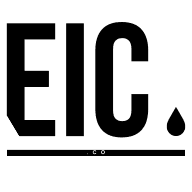How Do You Approach Editing Content Outside Your Expertise?
Editing content outside of six's expertise can be a daunting challenge for even the most seasoned professionals. In this article, a Co-Founder and a Head of Content Marketing share their tried-and-true strategies. The first insight emphasizes understanding basics through quick research, while the final insight highlights the importance of relying on context cues and structure. Discover six expert insights that will elevate your editing prowess.
- Understand Basics Through Quick Research
- Value of Third-Party Perspective
- Take a Structured Approach
- Focus on Clarity and Coherence
- Seek Insights from Subject-Matter Experts
- Rely on Context Cues and Structure
Understand Basics Through Quick Research
When editing content outside my expertise, I start with understanding the basics first by doing some quick research and getting familiar with key terms, concepts, and industry-specific language. My goal isn't to be an expert but to ensure the content is clear and makes sense to the intended audience. If something feels off or confusing, I'll ask the author or a subject-matter expert to clarify.
Then I focus on enhancing clarity and flow while ensuring the content meets the intended purpose and keeps the author's voice intact. I make sure the content is polished and easy to follow, even if the topic is new to me. It's a collaborative process that's all about making the content the best it can be.

Value of Third-Party Perspective
Maintain curiosity, and know that your input is still valuable. Rarely will a reader of content be an expert either! For this reason, a third-party perspective can be a really valuable thing for a client to make sure that specialist knowledge is transmitted as clearly and effectively as possible. Having an encyclopedic knowledge of a given subject — while a wonderful thing — in no way guarantees effective communication of said knowledge. As an editor, it is your job to remain open, be upfront about your perspective, but maintain the privilege of the outsider's viewpoint, tuned in to the value of the story at hand.

Take a Structured Approach
As an editor, when I encounter content outside my personal expertise, I take a structured approach. First, I conduct preliminary research to familiarize myself with the topic’s key concepts and terminology, ensuring I grasp the basics. Then, I focus on clarity, flow, and consistency, verifying that the content is logically organized and understandable—even for someone who may be new to the subject. Additionally, I cross-check facts and use reputable sources or consult with subject-matter experts when necessary. This way, I ensure that the content remains accurate while maintaining high editing standards.

Focus on Clarity and Coherence
When editing content outside my expertise, I lean on a simple truth: you don't need to be an expert to spot bad writing.
My approach is to focus on clarity, coherence, and logic. I'm not here to fact-check every technical detail—that's what subject-matter experts are for. Instead, I challenge assumptions, question vague claims, and ensure that the text is accessible to readers who also aren't experts. If I cannot even understand something, chances are the audience won't either.
Depending too much on being an expert can actually trip an editor up. Experts can be trapped in jargon, and it's my job to free them from it. An outsider's perspective is often more valuable than deep knowledge.

Seek Insights from Subject-Matter Experts
When editing content that falls outside my personal expertise, I take a step back and acknowledge the limits of my knowledge. Rather than making assumptions or relying on guesswork, I seek out subject-matter experts who can provide valuable insights and context. This approach not only ensures the accuracy and credibility of the content but also helps me learn and grow as an editor.
In one instance, I was working with a client who specialized in blockchain technology, an area I wasn't familiar with at the time. Instead of trying to wing it, I reached out to their in-house experts and asked them to explain the concepts and terminology used in the content. By doing so, I was able to provide targeted feedback that improved the clarity and coherence of the content, while also gaining a deeper understanding of the subject matter. This experience taught me the importance of humility and collaboration in the editing process, and I've carried that lesson forward in my work with clients from diverse backgrounds and industries.

Rely on Context Cues and Structure
When I'm editing outside my own expertise, I count on context cues and structure. I prefer to work on the logic and structure of the piece instead of being too concerned with the technical details. I look at whether the argument or information flows naturally and makes sense from a broader perspective. If I can follow the structure, then the reader, even if they're not an expert, will likely be able to follow it too. If something doesn't add up or feels out of place, that's usually where I step in and flag it for clarification.
I also use this as an opportunity to simplify complex ideas without losing their essence. I ask myself, "Could someone with no background in this topic understand it?" If not, I'll work on breaking down the information into more digestible parts. It's about being the bridge between expert-level content and a general audience.


